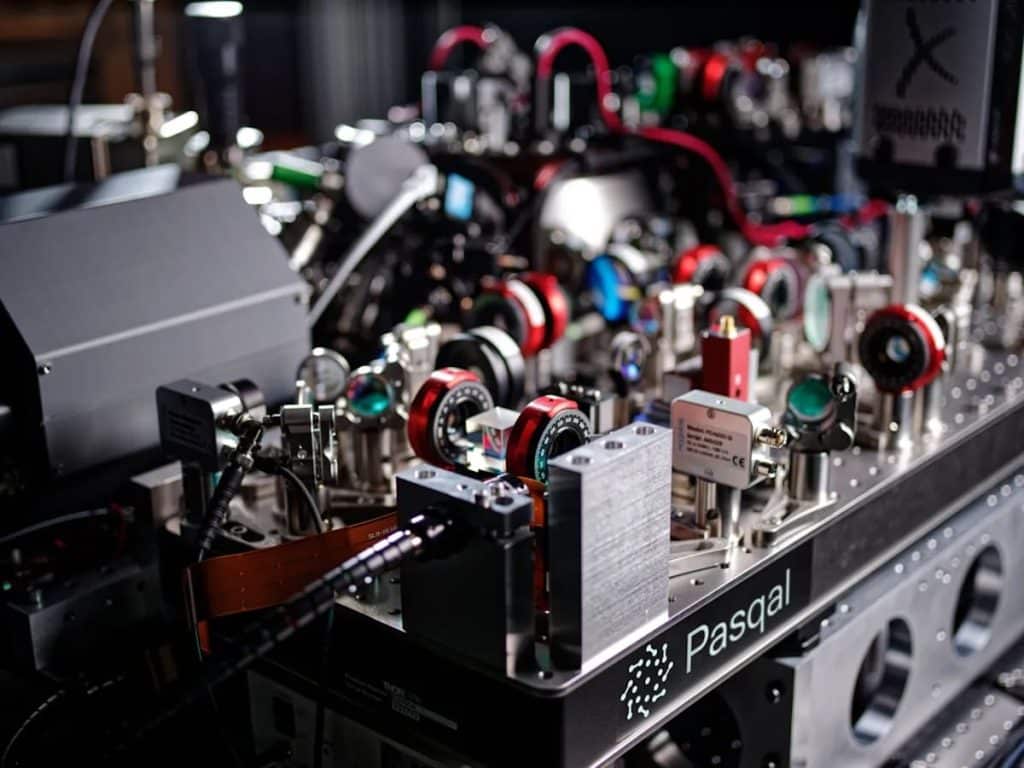Pasqal, a pioneer in neutral-atom quantum computing, has officially announced the availability of its quantum processing unit (QPU) on Google Cloud Marketplace, marking a major milestone in cloud-based quantum accessibility. Through this collaboration, enterprises and researchers around the world can now seamlessly access Pasqal’s 100-qubit neutral-atom QPU from within their existing Google Cloud environments.
The launch includes access to Pasqal Cloud, a comprehensive quantum computing platform that enables users to define, execute, monitor, and optimize quantum workloads directly in the cloud — with full post-processing support. This plug-and-play approach helps businesses overcome traditional barriers to entry by eliminating the need for on-premise quantum infrastructure and offering a flexible, pay-as-you-go model.
Unlocking Quantum for the Cloud Generation
Unlike traditional superconducting or trapped-ion qubit systems, Pasqal’s platform harnesses ordered arrays of neutral atoms manipulated by lasers to perform quantum calculations. This approach is inherently scalable and better suited for simulating real-world physical systems, optimization problems, and complex graph structures.
Quantum professionals and newcomers alike can benefit from Pasqal’s dual-level software stack. Its low-level libraries offer granular control of the QPU for research and custom implementations, while high-level libraries abstract away the quantum logic to deliver ready-to-use solutions for graph-based machine learning, optimization, and quantum simulation — with further capabilities expected in late 2025.
Executive Perspectives
“Bringing our neutral-atom QPU to Google Cloud Marketplace is a transformative step toward frictionless access to quantum hardware,” said Loïc Henriet, CEO of Pasqal. “This integration empowers users to harness the potential of quantum computing without leaving their hybrid or multi-cloud environments — it’s about removing complexity and enabling scale.”
“By offering Pasqal’s quantum solution via the Google Cloud Marketplace, customers gain instant access to a next-generation computing paradigm,” added Dai Vu, Managing Director of Marketplace & ISV GTM Programs at Google Cloud. “They can now deploy and manage quantum resources on the same trusted infrastructure used for AI, big data, and enterprise workloads.”
A New Era of Democratized Quantum Computing
This move by Pasqal follows broader industry momentum to bring quantum-as-a-service (QaaS) to cloud platforms, offering a critical foundation for hybrid quantum-classical workflows. The availability of Pasqal’s QPU on Google Cloud reinforces Europe’s role in the quantum race and expands the real-world applications of quantum computing across sectors like finance, logistics, energy, and materials science.
According to industry analysts, neutral-atom quantum systems offer a compelling balance between performance, error mitigation, and scalability. Pasqal’s architecture is particularly suited for mid-term quantum advantage demonstrations — real-world problems where quantum devices outperform classical supercomputers in specific tasks.
About Pasqal
Founded in 2019 by researchers from the Institut d’Optique and co-founded by Nobel Laureate Professor Alain Aspect, Pasqal is a quantum computing leader developing processors based on neutral atoms trapped in optical tweezers. The company has raised more than €140 million in funding and operates globally with customers across academia, government, and enterprise sectors.
Key Highlights:
- 100-qubit neutral-atom QPU now available via Google Cloud Marketplace.
- Compatible with Pasqal’s open-source software stack for both low-level and high-level quantum development.
- Pay-as-you-go access model suitable for research institutions, enterprises, and startups.
- Future updates to include quantum simulation and optimization libraries.
- Integration aligns with broader adoption of hybrid quantum-classical computing.
This strategic availability lowers the barrier to entry for quantum exploration and sets a strong precedent for how cloud-native quantum computing will scale in the years ahead.
Source: Pasqal

